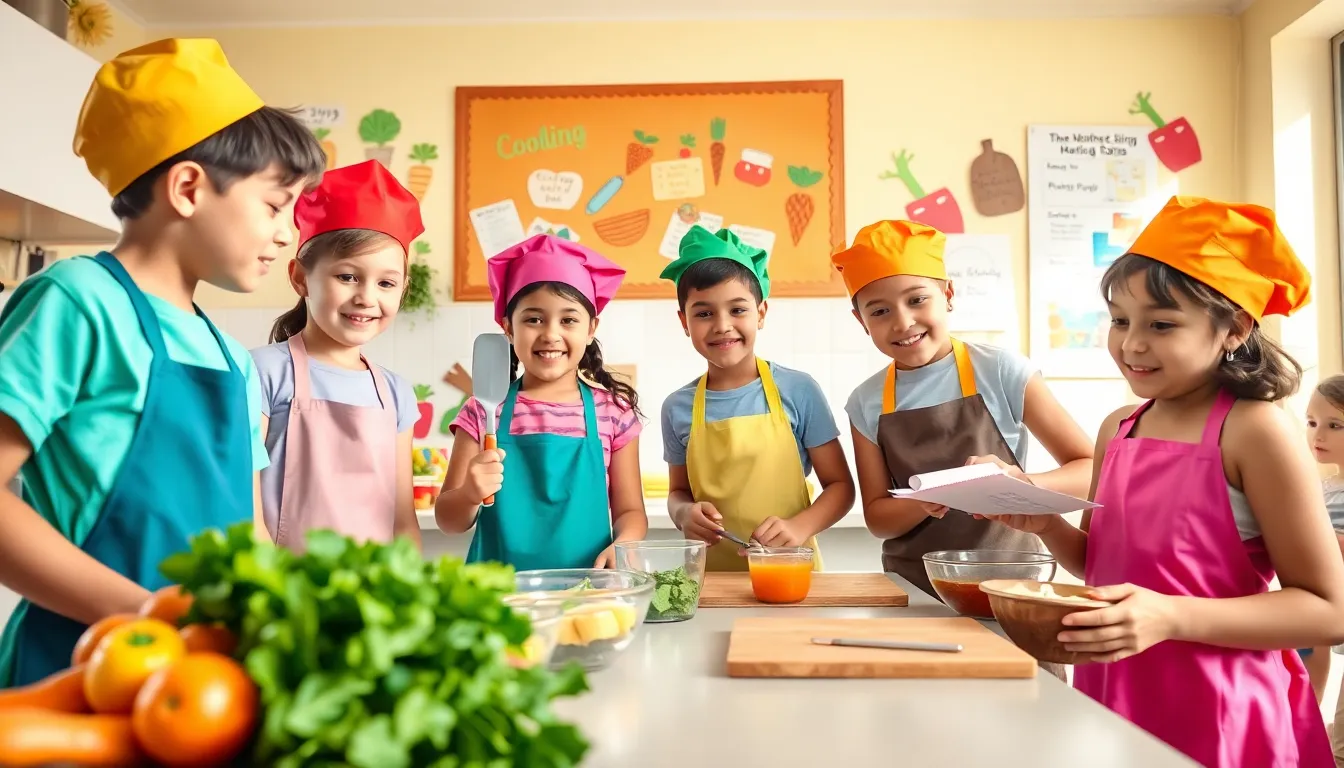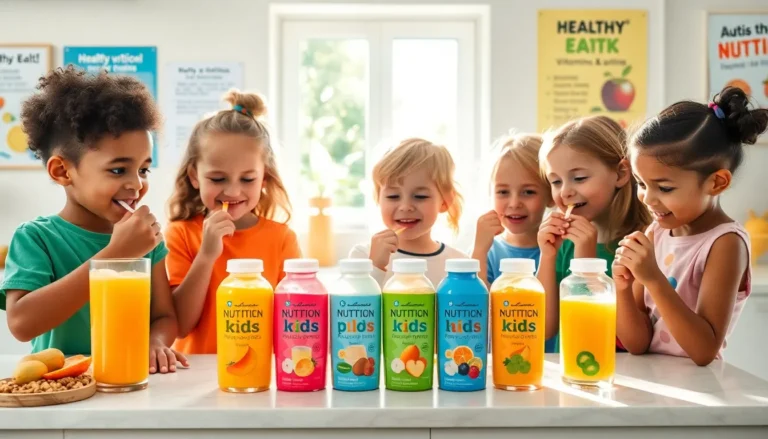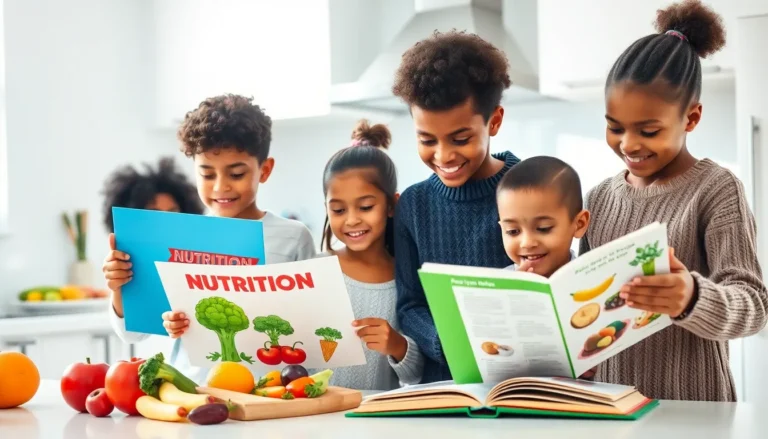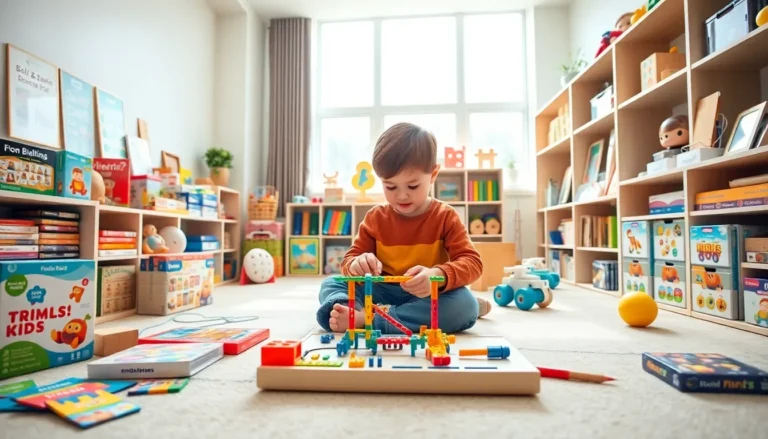When summer rolls around, parents often hear two words that send shivers down their spines: “I’m bored.” But what if that boredom could be transformed into culinary creativity? Welcome to cooking summer camp, where kids trade in their video games for spatulas and chef hats. Not only do young chefs get a chance to whip up delicious dishes, but they also learn essential skills, explore healthy eating, and have bucketloads of fun. So, let’s jump into the delectable world of cooking camps and discover why every kid should don an apron this summer.
Table of Contents
ToggleWhy Choose Cooking Summer Camp?
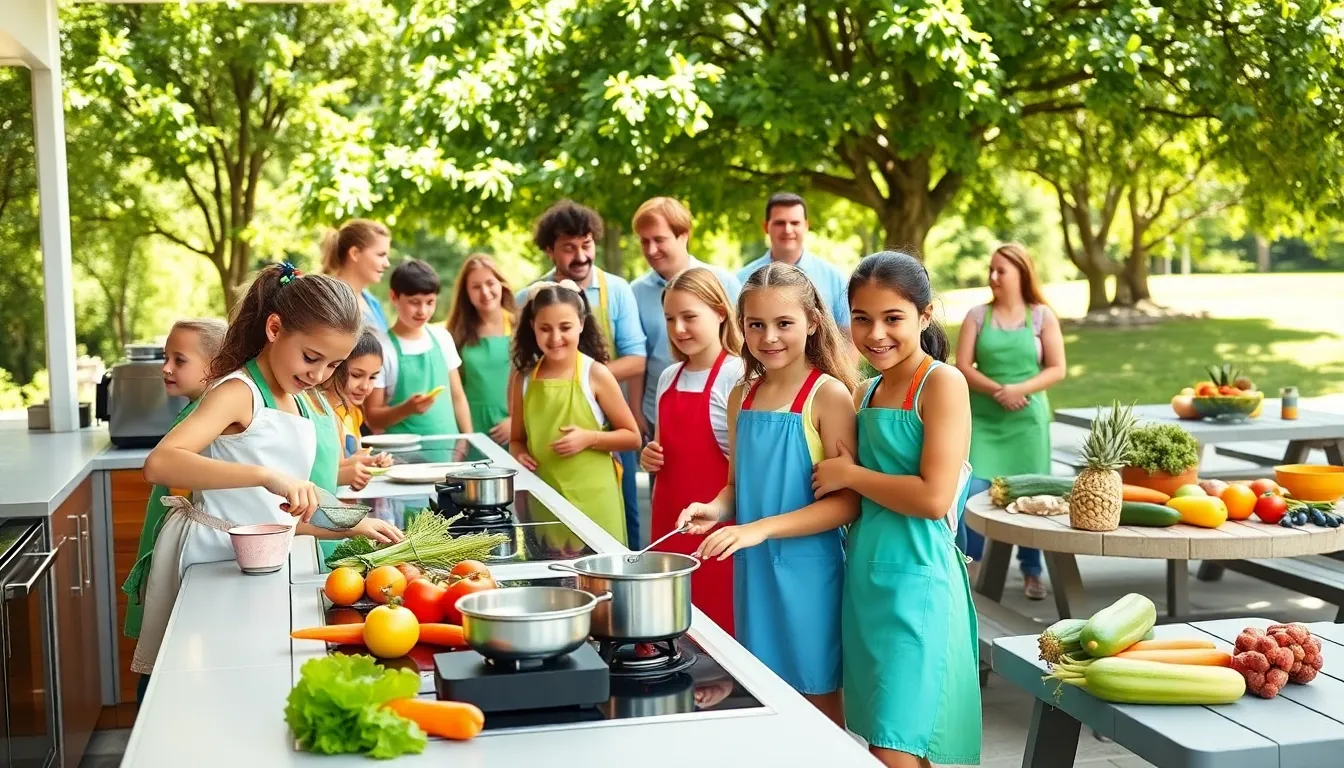
Benefits of Cooking Education for Kids
Cooking is more than just mixing ingredients: it’s a powerful educational tool. Kids gain knowledge in math through measuring, chemistry through baking, and even reading skills by following recipes. These camps foster a deep appreciation of food and can ignite a lifelong passion for cooking.
Fostering Healthy Eating Habits
Imagine this: a child who previously turned their nose at broccoli suddenly starts requesting it at every meal. Cooking camps teach kids how to identify fresh ingredients and prepare nutritious meals, instilling healthy habits that often carry into adulthood. They learn the importance of a balanced diet while enjoying tasty, homemade dishes.
Developing Life Skills Through Cooking
Cooking equips children with invaluable life skills. From time management to food safety, mastering the art of cooking builds confidence. Also, teamwork thrives in a kitchen setting, whether they are collaborating on a dish or washing up together afterward. Cooking camps create a sense of accomplishment that transcends the stove.
Overview of Cooking Summer Camp Programs
Types of Camps Available
Not all cooking camps are created equal. Some focus on baking, while others emphasize international cuisine or healthy eating. Camps may also vary between day camps and overnight experiences, catering to different preferences and schedules. Finding a camp that aligns with a child’s interests can make all the difference in their summer experience.
Age Groups and Skill Levels
Cooking camps often accommodate various age groups and skill levels, ensuring that whether your child is a budding chef or a complete novice, there’s a program tailored just for them. Younger kids might focus on simple recipes, while older participants could tackle more complex dishes and culinary techniques.
Cooking Camp Themes and Specialties
Themes can add an exciting twist to cooking camps. Some programs might organize winemaking for adults, baking bonanzas for aspiring pastry chefs, or farm-to-table experiences where kids visit local farms. These specialized camps can elevate the learning experience, making it both fun and memorable.
What to Expect at Cooking Summer Camp
Daily Schedule and Activities
So, what does a day at cooking camp look like? Expect a vibrant mix of cooking lessons, hands-on workshops, and maybe even guest chef appearances. Campers start their day with an overview of recipes, followed by prep time, cooking sessions, and of course, a chance to taste their creations at the end.
Hands-On Learning Experiences
Forget lectures. Cooking camps focus on experiential learning. Kids engage in making their own meals, experimenting with flavors, and inventing their unique recipes. This kind of hands-on experience is not just fun, it reinforces learning and creativity.
Culminating Camp Events
Many camps end with a grand event where kids can showcase their culinary masterpieces to family and friends. These events often turn into feasts, allowing kids to feel proud of what they’ve accomplished. Nothing beats the look on a parent’s face when they taste their child’s dish.
How to Choose the Right Cooking Camp
Key Factors to Consider
When selecting a cooking camp, several factors should come into play. Consider age appropriateness, the camp’s focus, and location. Also, look for reviews from previous participants to gauge the overall experience. It’s essential to choose a camp that fosters a conducive learning environment.
Researching Camp Credentials
Researching staff qualifications is crucial. Look for experienced chefs or educators leading the camp. Check if the camp offers certifications upon completion. Reputable camps often have established programs that ensure safety and educational value.
Preparing Your Child for Camp
What to Pack and Bring
Packing for cooking camp goes beyond just clothes. Essentials typically include an apron, a water bottle, and perhaps a favorite kitchen tool. It’s also helpful for kids to bring a notebook to jot down recipes and tips they learn throughout the experience.
Encouraging Participation and Enthusiasm
Getting kids excited about camp is essential. Talk to them about the types of dishes they’ll get to make and the skills they’ll learn. Sharing your own cooking stories can inspire them to jump into the culinary adventure with an open mind.

